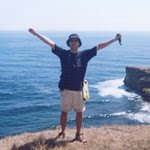Political Parties has always been the core of a politician's achievements and even failures. Since 1901 when the first political party was established in order to lobby for Philippine Independence from American rule, most of their objective was to promote political freedom and to campaign from individual political platforms, whether nationalistic or for autonomy.
Below is the list of what I considered political parties which had made an impact on the Philippine political scene, whether positive or negative:
Nacionalista Party(NP) – the oldest political party founded in 1907, 8 of our past presidents were members of NP when they won in their positions, including Marcos in 1965. The party is guided by its conservative and nationalist ideology, hence, the name Nacionalista. Unfortunately, after its political hiatus from the Martial Law years, the emergence of KBL, the 1992 multi-party system and other historically significant parties and even politicians who adhere to butterfly politics or balimbingan, the party was reduced to a minor political party which contests positions on local level, until its apparent “BUY-OUT” from its current standard bearer who doesn’t even wear the original party colors of red, white, blue, or green.
Liberal Party(LP) – nothing much to say except a breakaway of the NP, the party was founded in 1945. Synonymous to the Plaza Miranda bombing, LP is often compared to the US Democratic Party with regards to its ideology. In 1965, President Diosdado Macapagal changed his mind and decided to run for re-election(talk about dejavu 2004) while the Liberal Party was set to endorse Ferdinand Marcos as its standard bearer in the coming elections. Marcos bolted to the NP and eventually won against Macapagal. Today it is a third generation political party, with Noynoy Aquino(Ninoy Aquino’s son) and party president Mar Roxas(a grandson of founder Manuel Roxas) as standard bearers.
Kilusang Bagong Lipunan(KBL) - a supposedly unilateral party founded by president Ferdinand Marcos during the Martial Law years, it is now a laughing stock of the present political party system and is sometimes considered a nuisance for some of its election strategies. Often, the party is used by nuisance candidates who are either mentally or politically incapable of governing the entire country. It is also used by nuisance candidates with similar or familiar surnames in order to confuse the voting public from legitimate candidates. Its only remaining reputable candidates are Presidential son Ferdinand "Bongbong" Marcos Jr. and the entire Marcos clan who still holds vast political influence in Ilocos Norte.
United Nationalists Democratic Organizations(UNIDO) - the opposition party founded by former vice President Doy Laurel in the 80’s. He was the party’s standard bearer when Marcos called for a snap elections in 1985. He was even endorsed by Cory in June 1985 Party Convention, but after 5 months, she changed her mind and also announced running for president. Doy said that he will only give way to Cory if she will run under the UNIDO party. Cory rejected the offer first, and later again, for the second time, changed her mind and thus the opposition was united in the 1986 elections.
Laban ng Demokratikong Pilipino(LDP) – the most dominant party in post EDSA era and was founded in 1988. The party was the stepping stone of politicians with bigger ambitions. It is the most bolted party and the root of the other emerging parties. Fidel V. Ramos lost the party nomination, bolted, and founded Partido Lakas ng Tao(which would later become Lakas-NUCD-UMDP then Lakas-CMD and then later merged into Lakas-KAMPI) and was proclaimed president in 1992. Gloria Arroyo and Peping Cojuangco were members of LDP when they bolted and founded KAMPI in 1997. In 2004, the party was divided into 2 wings - the Aquino wing which supported Panfilo Lacson as standard bearer and the Angara wing which later became KNP(Kabalikat ng Nagkakaisang Pilipino) with Fernando Poe Jr. as presidential candidate.
Lakas - KAMPI(Kabalikat ng Mamamayang Pilipino) - an “alliance” party founded by president Fidel V. Ramos after losing the LDP party nominations in 1992. It was originally Partido Lakas ng Tao then later changed into Lakas-NUCD-UMDP after merging with NUCD(National Union of Christian Democrats) of Raul Manglapus ang UMDP(United Muslim Democrats of the Philippines) of Ambassador Sanchez Ali. Later, it changed its name into Lakas-CMD(Christian and Muslim Democrats), and in 2008, it changed again into Lakas-KAMPI after merging with the KAMPI of Gloria Arroyo. The party is often associated with HUNYANGO, a reptile which has the ability to change its color as a way of camouflage, depending on the environment (making an alliance with its surroundings).
Nationalists People Coalition(NPC) – the illustrious party founded in 1991 only to pursue the oligarchs’ ambitious bid for political power. Its standard bearer in 1992 was Danding Cojuangco and is still the party’s influential leader with regards to its affiliations. Its political power is derived from its unlimited source of funds for political campaigns. The party then joins coalition with the majority in order to gain political clout. This coming election, its standard bearer is labeled a “political prostitute” and the party is allied with anybody who has enough influence for the party to survive. There is no known clear ideology except to follow the leader, whoever that is.
Epilogue:
The Philippine political party system is a unique party system. It promotes weak party loyalty and defections are almost normal occurrences particularly in the weeks nearing the deadline of filing of candidacy. Even secret alliances are in the works until the evening before Election Day. Party affiliations change almost at the same time the blow of the wind changes. Even the politicians running for elective post will sometimes drop some of their party-mates secretly for a considerable political favor, so ideological stand in any particular party does not carry a big weight come Election Day.


